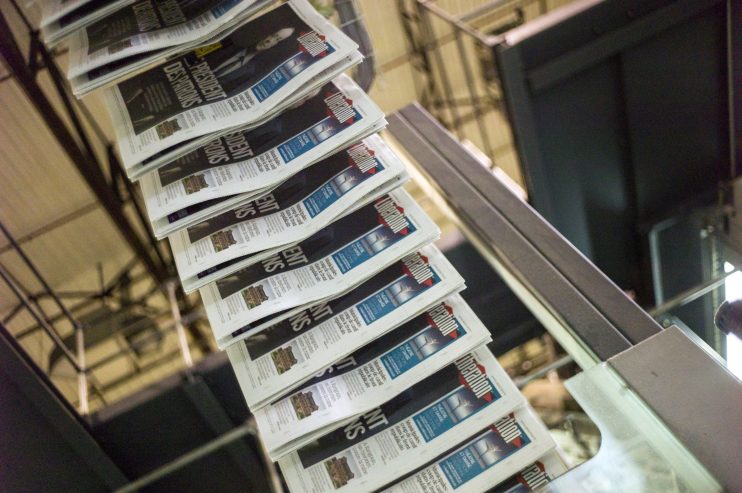Trust is at an all-time low, but we need journalism now more than ever

Last month, a YovGov poll found that over 50 percent of adults in the UK now see the British media as a “force for bad”.
This is an alarming statistic. It is the first time the monthly tracker has found that the majority of Brits hold this view, and the speed at which this trend has developed is staggering. In the space of just 11 months, we have seen a shift from 43 to 53 per cent “against” the UK media.
A brief scroll through the Twitter feeds of the country’s leading journalists will reveal a trail of aggressive accusations of bias and digital heckles of abuse. And it’s not just the UK — this is a global trend. The Oxford University Reuters Institute’s 2020 Digital News Report found that only 38 per cent of people around the world are trusting of the news. In the UK, that figure falls to 28 per cent.
What has caused this disturbing shift? The Reuters report illustrates that politically divided societies tend to trust the media less. That figures: when media sources reflect polarised views, even in a balanced way, they will naturally be reflecting deeply dividing viewpoints.
The rise in naked partisanship online is accelerating this trend. The stratification of our social media feeds — the process whereby media content is splintered into a channel for every taste — leads us to retreat into our own self-created echo chambers. This worrying tendency will continue to sow the seeds of division and more deeply entrenched views. Debates on polarising issues such as our membership to the European Union or the migrant crisis exacerbate our distrust further because we fail to listen to the opposing perspective.
What we often forget is that the media is the battlefield for ideas. It provides the apparatus for healthy debate and is a bellwether for a fully functioning democracy. We must be willing and open to hear the views and evidence of our opponents. It is with an effective, free and transparent media that we find common ground and compromise.
One thing is certain: the media has saved lives during this crisis.
Take the PPE supply crisis at the beginning of the Covid-19 outbreak. Continued pressure and assertive questioning from journalists, day after day, led the government to accept its mistake, apologise, and most importantly significantly ramp up the manufacturing and distribution of PPE. Similarly, without the reporting within care homes and hospitals, the public would be in the dark about the catastrophe which was unfolding.
More recently, the barrage of pressure from journalists questioning the government’s A-level results fiasco forced a U-turn. It was the media that gave voice to the abandoned students who had been met with a grave disappointment. It was the media that aired the frustrations of teachers and parents and made them impossible to ignore.
The role of media outlets in disseminating public information, explaining key coronavirus guidance, and debunking conspiracy theories has also been vital.
As a free press is under attack around the world — from Hong Kong and China to Poland and Russia — we must protect its autonomy here at home. Of course, journalists are not perfect, but a failure to communicate the value of the media could see current distrust become a permanent trend.
Without the democratic accountability that it facilitates and its ability to shine light on dark corners, we would all be the poorer. We must do more to promote its importance. Perhaps it is time that media outlets brought in the expertise of the one sector they value and deride in equal measure: PR.
Main image credit: Getty